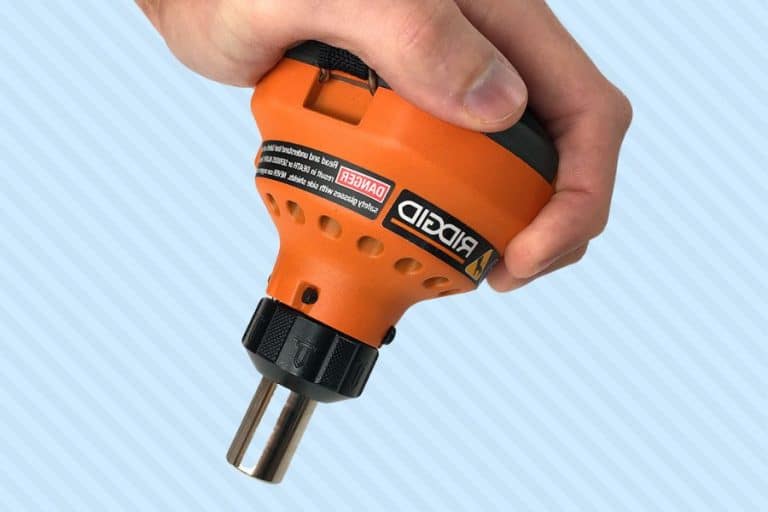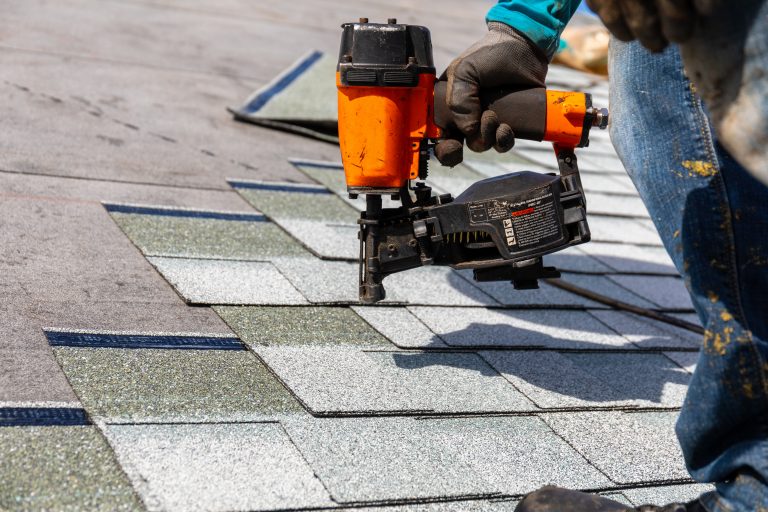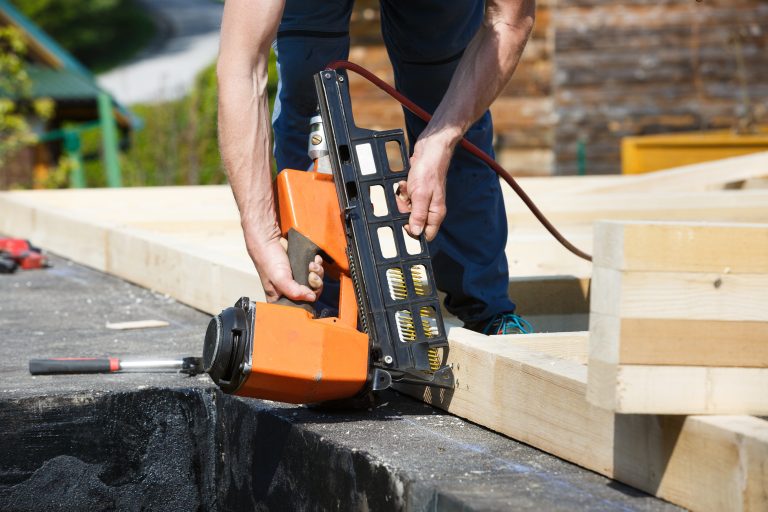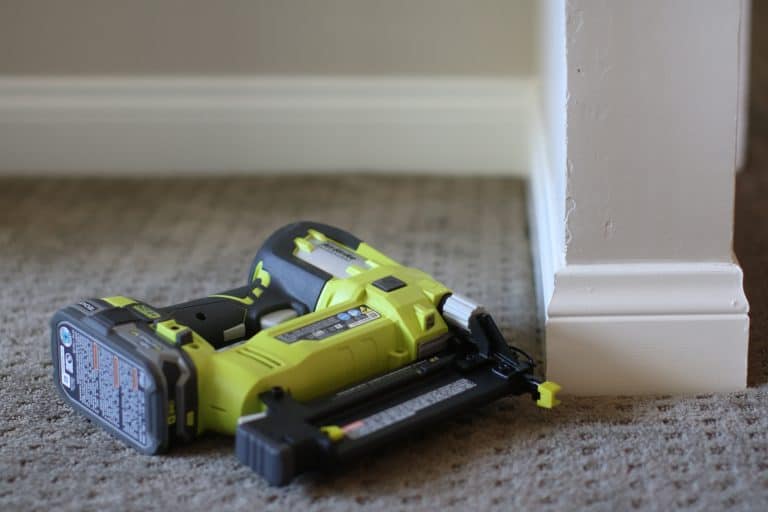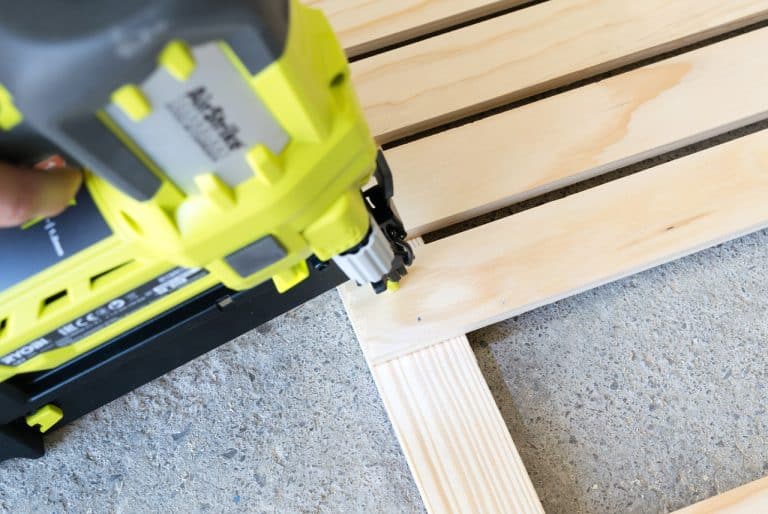Pin nailers are a useful labor-saving tool for many woodwork projects, but can you use a pin nailer for installing baseboards? Nailers are a great way to speed up repetitive tasks on your project, but not all nailers are suitable for all projects.
Contents
Is A Pin Nailer Suitable For Baseboards?
A pin nailer will not work for affixing baseboards, as the nail head size is too small to hold the baseboard permanently, and the gauge of the nail is too thin. Use a nail gun with a larger nail head, such as a 15-gauge finish nail.
A nailer is a useful tool to make fitting a baseboard around the perimeter of a room easier and faster. The right nailer is important to ensure the baseboard will stay in place. A pin nailer may seem like a good option, but it is not the right nailer to use for fitting baseboards.
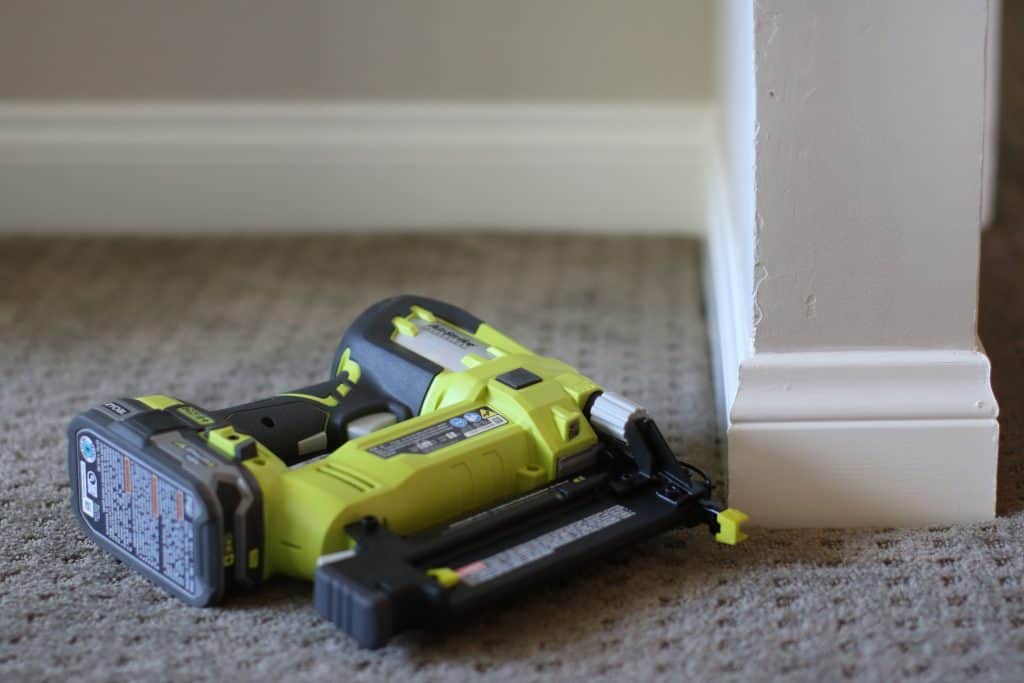
If you have done any woodworking or home DIY, you will know that the right tool for the project can make all the difference to the job at hand. The right power tool can affect the time spent on the project, the durability of the project, and the final finish of the project.
Why is a pin nailer not the best choice for installing baseboards, and what nailer would be suitable for this job?
Why Is A Pin Nailer Unsuitable For Baseboards?
A pin nailer is designed for use with a particular pin nail gauge and length. It is not the thickness of the baseboard that is the issue but rather the structure of the pin nail that is inadequate to hold the baseboard in position.
A pin nailer fires thin nails that do not have much of a head at the top of the nail. Thin nails are an advantage, especially when working with thin wood that may crack or decorative work where you don’t want the nails to be noticeable.
The design of the pin nails is the factor that makes them unsuitable for holding baseboards in place. The lack of a substantial head on the pin nail will allow the baseboard to pull away from the wall and simply slide off the headless nail.
If you use a pin nail, you’ll have a hard time removing the nail head if you want to use a different option for affixing.
What Happens If You Use A Pin Nailer To Install Baseboards?
If you use a pin nailer to fix a baseboard, it may initially look fine and secure, but as the baseboard expands and contracts in conjunction with the wall and floor, the pin nail will not hold the baseboard in position.
After a short time, the baseboard will move, and you will begin to notice a gap between the wall and the baseboard.
The pin nail is still in place, but the baseboard can move back and forth over the pin nail because there is no head to grip on the fibers of the baseboard and restrict movement.
Pin nails are also thin, which means the baseboard can easily bend these nails with any lateral movement of the boards. This can also result in less-than-acceptable results for the baseboard installation.
What Nails Are Best For Baseboards?
Baseboards require a thicker, headed nail to hold them in place, snug against the wall, and restrict lateral movement of the baseboards. The recommended nails for baseboard installations are 15 or 16-gauge nails with a length of 1.5 to 2.5 inches, depending on the thickness of the baseboard.
The nails must be long enough to go completely through the baseboard and sink deep enough into the wall stud to hold the baseboard in place.
What Type Of Nailer Is Best For Baseboards?
The best nailer for baseboards is a finish nailer. These nailers come in various sizes, and you can source a finish nailer that can deliver 15 or 16-gauge nails. These nailers also punch in headed nails, which are the best option for baseboards.
Some people may consider a brad nailer for baseboards, but a brad nailer is simply a pin nailer that can deliver slightly thicker pin nails. Brad nailers do not shoot nails with substantial heads to keep baseboards secured in position.
The best brad nailers are generally used to hold woodwork pieces in place while the wood clue has time to dry. Brad nails do not have broad heads, which makes them suitable for this type of application, but not for installing baseboards.
What Can You Use A Pin Nailer For?
The best use for a pin nailer is to install crown molding or decorative molding where thinner wood is used that does not require much holding power to keep the piece in place.
The limit on the nails that can be used in a pin nailer is 21 to 23-gauge pin nails, which are not intended for structural work or holding power.
The best pin nailers are most commonly used in fine, decorative woodworking projects and, like brad nails, are often used in conjunction with wood adhesive. These nails hold the wood in place while the adhesive dries, rather than securing the piece in place with pin nails alone.
What Are The Different Types Of Nailers?
There are different nailers designed for different construction and woodworking applications. Understanding the use of each tool will help you select the right nailer for your project.
The following are the most commonly used nailers.
- Framing nailers. These nailers are used for heavy lumber and large construction projects such as building a drywall framework, house roofing timbers, or a deck. Often cordless, framing nailers typically shoot nails up to 3.5-inches in length
- Finish nailers. These versatile nailers come in several sizes, with the most common being 15 or 16-gauge nailers. They are used to install baseboards, door and window frame trim, and molding
- Brad nailers. Brad nailers can be used for lightweight trim and cabinetry but are limited to 18-gauge headless nails that do not have a lot of holding power.
- Pin nailers. Pin nailers are great for fine decorative work where minimal holding power is needed on the workpiece. The nail holes are small enough to be almost invisible, and the thin nails won’t split the thin wood of decorative trim. These nailers are not suitable for structural work.
There are also job-specific nailers, such as staple nailers, roofing nailers, and siding nailers, that are designed specifically for these jobs
Conclusion
Pin nailers are not suitable for installing baseboards in your home. The pin nails are too thin and do not have enough of a head to restrict the movement of the baseboard. The baseboard installed with pin nails will pull away from the wall because it will slide along the pin nail or bend the pin nail.
The more appropriate nailer to use for baseboards is a finish nailer that shoots 15 or 16-gauge nails. These nails have more holding power and will keep the baseboards in place.
